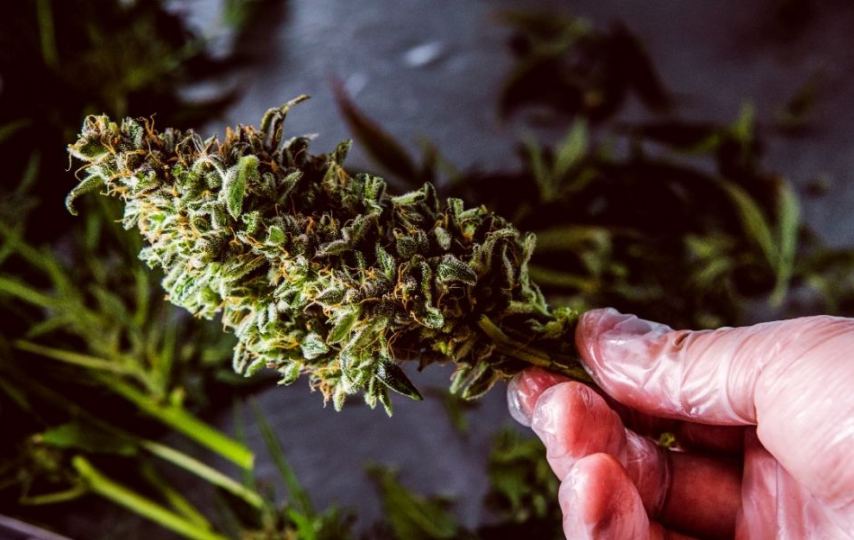With cannabis laws changing worldwide, curious potential users need to know the difference between hemp and weed. The age-old usage of cannabis was put to a screeching halt when the plant matter was officially outlawed for any use, including medical and therapeutic, with the passage of the Controlled Substances Act of 1970 (CSA).
Due to public demands and the changing of times, policymakers have been reviewing these laws and listening to their constituents more and more, if nothing else. Mainly that cannabis has more potentially positive health benefits that outweigh its intoxicating side effects. A middle ground is in the works, making it a big win for the industry and the consumers.
Hemp vs. Weed
For thousands of years, hemp and marijuana plants were used in making paper, textile, fabric, building materials, added in food and beverages, and considered a medicinal herb by healers. After the CSA labeled all species of cannabis as illegal due to its psychoactive side effects, medical trials on its potential health benefits were stopped and defunded as well.
The United Nations, together with hundreds of countries, outlawed and criminalized the use of any cannabis and cannabis-derived products. There was an uproar from the general public who used the organic matter for recreational and therapeutic purposes. Lawmakers, however, stood firm by their decision. Up until very recently, that is.
Thanks to the brave few who continued with their pursuit of knowledge, experts found different types of cannabis. The two most popular are hemp and weed (also known as marijuana). While science doesn’t differentiate them according to species, the law does. The main difference being the presence and levels of tetrahydrocannabinol (THC) in the plant.
In essence, hemp plants contain low amounts of THC, while weed has plenty of the compound. Some components are present in one type but not in the other, such as specific terpenes and flavonoids. Understandably, many people confuse the two, but with some credible research, these misconceptions will hopefully cease in the future.
CBD and THC Differences
As mentioned above, the main difference between hemp and weed is the dominant cannabinoid in the plant matter. There are over a hundred cannabinoids that have been discovered and distinguished over the years. THC and cannabidiol (CBD) are two of the most popular ones, not to mention the most present in hemp and weed.
THC is the cannabinoid responsible for inducing a “high” in users, and thus, the main culprit for the ban on cannabis in most countries. A cannabis plant is considered weed or marijuana if it contains more than 0.3 percent THC content by dry weight. Less than that, and it is regarded as hemp that contains more CBD in composition.
There are also more and more hemp products emerging on the market after its newfound legality in the United States last 2018. These include CBD flowers, oil tinctures, pills, topicals, gummies, and even pet treats. A good number of choices for anyone looking to dip their toes into the cannabis world without having to worry about weed high as a side effect. If you’re looking for the best products then you can buy CBD gummies online from a reputable online store like CBDfx which provides the best quality at very affordable prices.
What Are the Side Effects of CBD?
Though CBD is a relatively newly-discovered compound, at least when compared to THC, recent studies have found that cannabidiol has plenty of potential health benefits. Hemp-derived CBD is low in THC by nature, so there is no particular danger in side effects. Even the WHO has labeled it a safe substance, without the potential for abuse or dependency.
Cannabidiol’s health benefits include its anti-inflammatory, antibacterial, and antioxidants that help with many conditions. From chronic body pains, anxiety symptoms, and difficulty sleeping to a weakened immune system, CBD could help manage these, if not preventing them altogether.
Admittedly, most of these health claims are hypothetical and testimonial-based at best. Science has a long way to prove that, indeed, CBD, hemp, and cannabis, in general, can be used in future medicines and treatments. The Food and Drug Administration is yet to issue an evaluation statement to these claims, so be sure to put that in mind when using hemp products.
Is Hemp-Derived CBD Legal in the United States?
Due to the difference in levels of THC, and thus the difference in side effects, the 2018 Farm Bill has federally legalized industrial hemp and all products, including CBD oil. However, some states still have a rigorous medical marijuana program that restricts access to hemp oil exclusively to those who are medically qualified to use it.
Fortunately, more and more states have allowed their citizens to grow hemp, cultivate it, manufacture, and distribute its byproducts to the general public. New policies have been put in place to protect both producers and consumers from building up the country’s hemp and CBD industry. It would also help the agricultural sector a great deal.
However, suppose you are living in a state that has legalized cannabis but is looking to travel to another state or county with your hemp-derived CBD products. In that case, it is essential to lookup local laws first to avoid conflict with local authorities.
Be sure to only buy CBD oil from reputable brands that provide third-party laboratory results that ensure the potency and purity of the ingredients used. Consult with a medical expert before making any drastic changes to your health routine.













